21+ Sample Content Writing
-
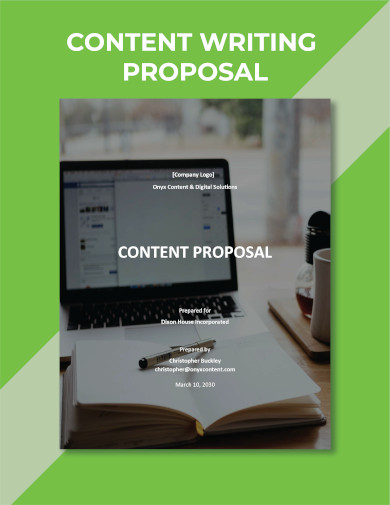
Content Writing Proposal
download now -

Simple Content Writing
download now -
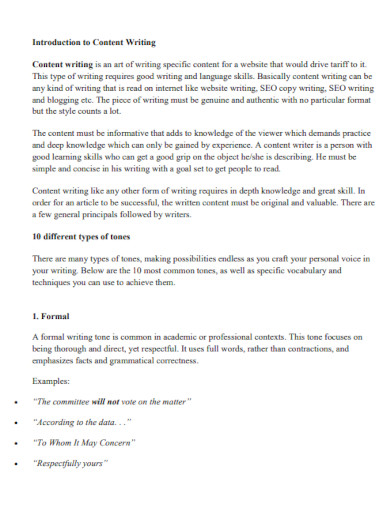
Content Writing Introduction
download now -
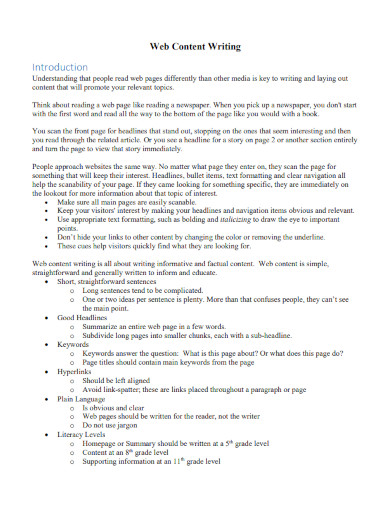
Web Content Writing
download now -
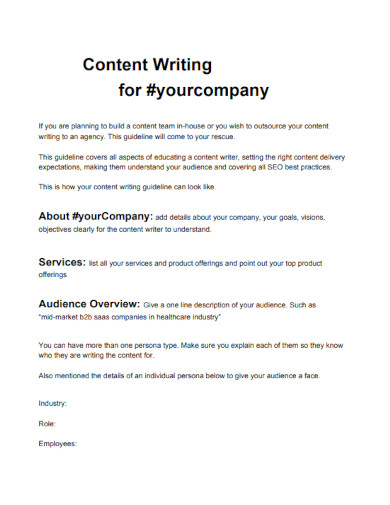
Company Content Writing
download now -
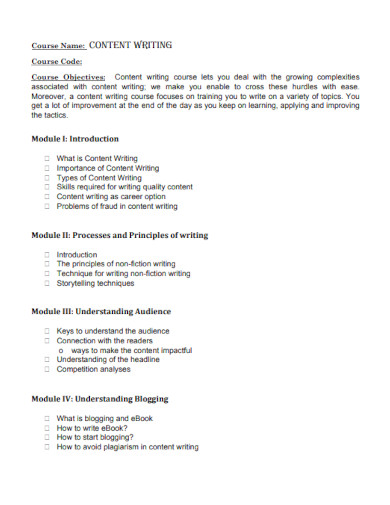
Basic Content Writing
download now -
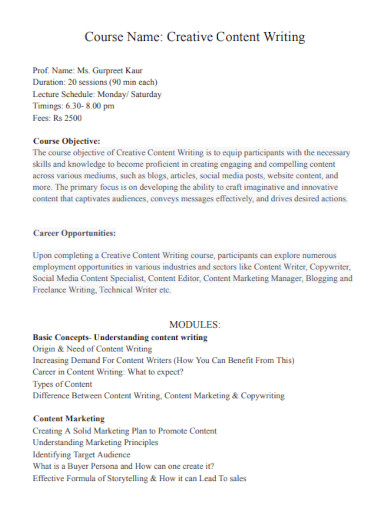
Creative Content Writing
download now -
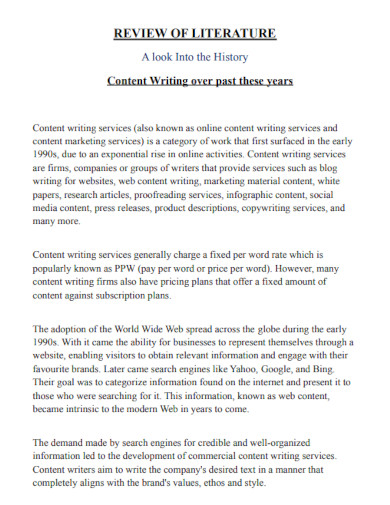
Literature Content Writing
download now -
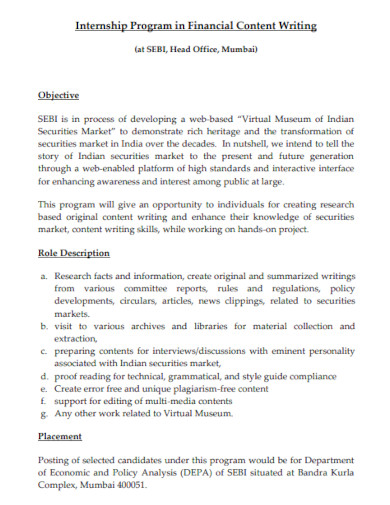
Financial Content Writing
download now -
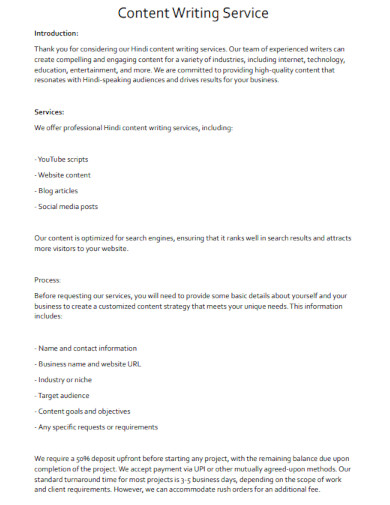
Content Writing Service
download now -
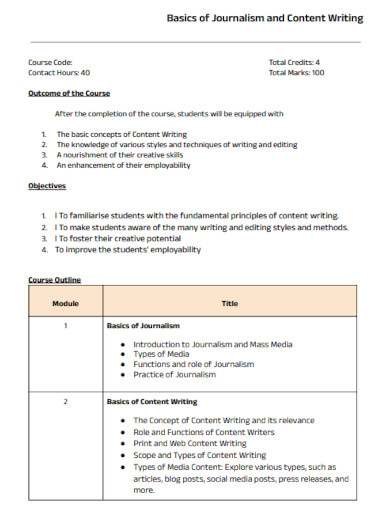
Content Writing Outline
download now -
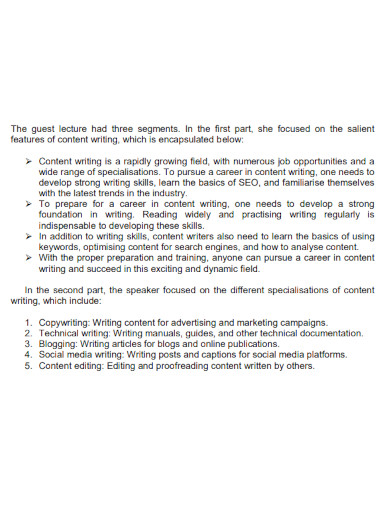
Content Writing as a Career
download now -
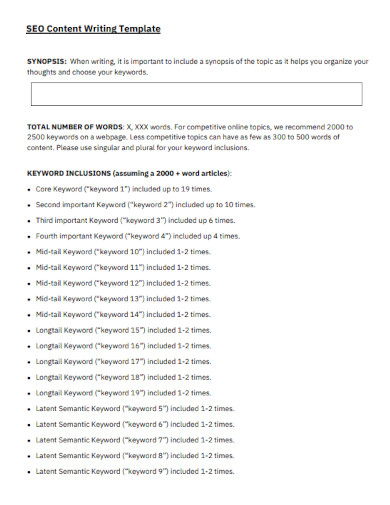
SEO Content Writing
download now -
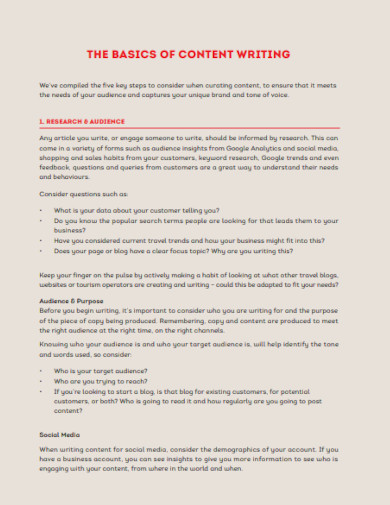
Basics of Content Writing
download now -
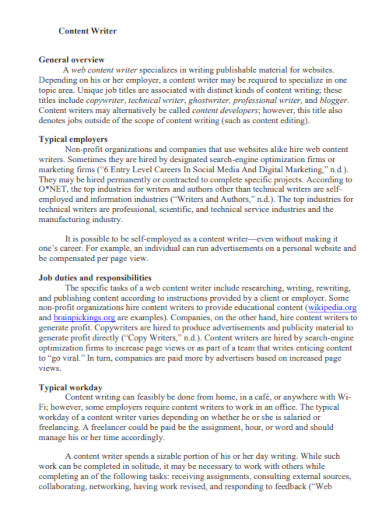
Printable Content Writing
download now -
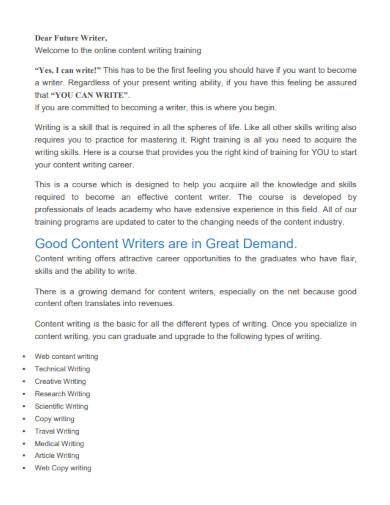
Online Content Writing
download now -
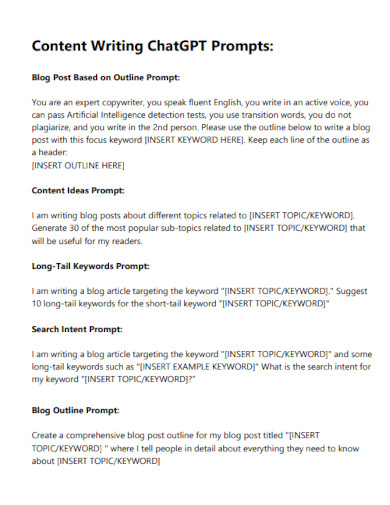
Content Writing ChatGPT Prompts
download now -
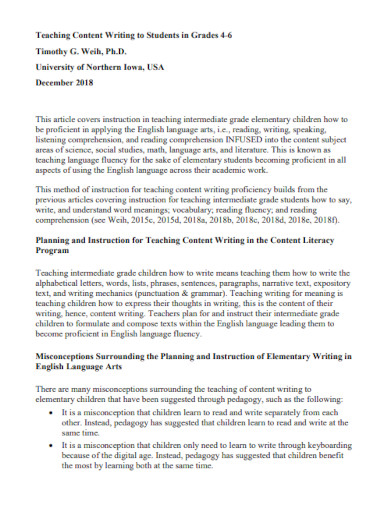
Content Writing for Students
download now -
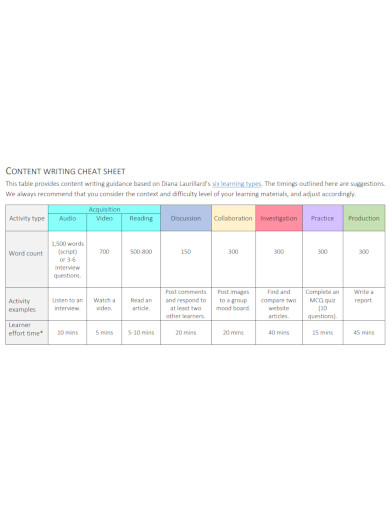
Sample Content Writing Format
download now -
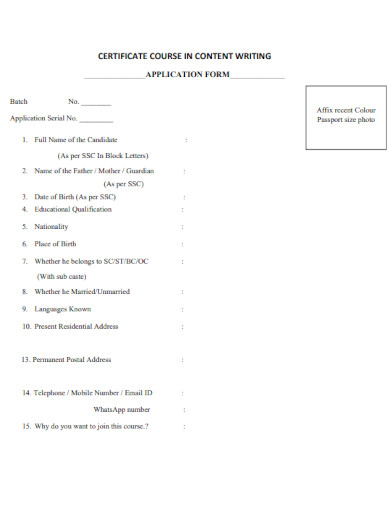
Content Writing Application Form
download now -
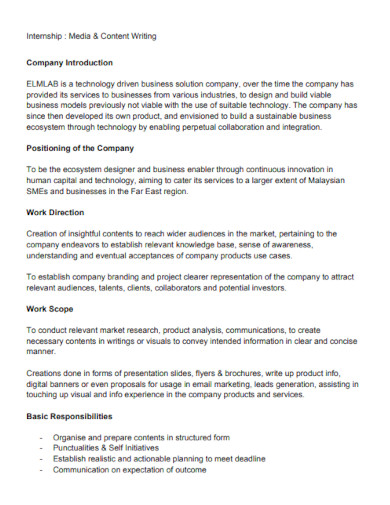
Media & Content Writing
download now -
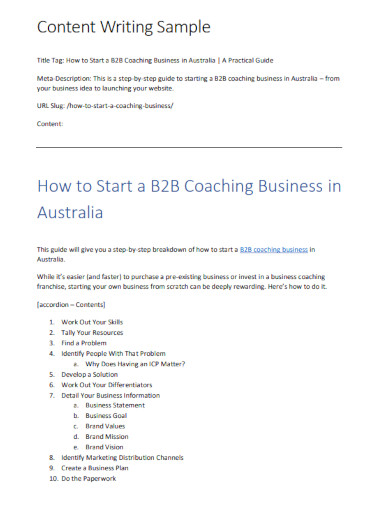
Content Writing Example
download now
FREE Content Writing s to Download
21+ Sample Content Writing
What is Content Writing?
Types of Content Writing
How to Be Effective in Content Writing
FAQs
What are content writing templates?
How can templates benefit writers?
Where can I find content writing templates?
Can templates stifle creativity?
Are templates suitable for professional projects?
What is Content Writing?
Content writing is a multifaceted craft that encompasses a spectrum of styles, including creative writing, technical writing, screenwriting, and business content creation, tailored for marketing purposes. It involves crafting well-structured and engaging written pieces that resonate with diverse audiences. The format of content writing varies, ranging from blog posts and articles to social media posts, website copy, and whitepapers. Samples of different formats provide invaluable insights into effective techniques, serving as blueprints for freelance novices and seasoned professionals alike. The realm of content writing offers a playground for creativity and expertise to intertwine seamlessly, facilitating impactful communication across various industries.
Content writing’s significance reverberates across diverse realms. For individuals, it opens doors to express creativity and share knowledge. Project managers recognize its pivotal role in conveying project details effectively. A survey by HubSpot highlights that 70% of marketers actively invest in content marketing. Content writing specialists are entrusted with shaping brand narratives, while marketing professionals thrive on their potential to engage and convert. Notably, 61% of consumers are more likely to purchase from companies with custom content (Dragon Search Marketing). Writers find a niche to explore their storytelling prowess. In essence, content writing isn’t just about words – it’s the driving force behind impactful communication strategies such as developing integrated marketing communications plans in today’s interconnected world.
Types of Content Writing
Dive into the multifaceted world of content writing as we explore its various types. From the imaginative realms of creative writing and the precision of technical writing to the captivating storytelling in screenwriting using script format, we unravel the nuances that make each style unique. Discover your niche and excel in communication.
How to Be Effective in Content Writing
Unlock the art of impactful content creation with our expert insights. Discover essential techniques to enhance your content writing skills across genres, captivating audiences with precision and creativity.
Step 1: Understand Your Audience
To excel in content writing, it is essential to comprehend your target audience. Whether it’s creative writing or marketing content, knowing who you’re addressing is crucial. Research their preferences, needs, and language style. Tailoring your content to their expectations enhances engagement and resonance. This applies to all genres, from screenwriting to business content writing. Samples of successful pieces can serve as inspiration, aiding in crafting content that speaks directly to your audience.
Step 2: Master Various Formats
Diversify your skills by mastering different content writing formats. While creative writing thrives on imagination, technical writing demands precision. Adapt your style for blog posts, reports, or social media content. Being versatile elevates your professional value, whether you’re freelancing or working in-house. Marketing content, for instance, requires a persuasive tone, while screenwriting calls for storytelling finesse. Understand the distinct requirements of each format, ensuring your content resonates effectively.
Step 3: Focus on Clarity and Structure
Regardless of the genre, clarity and structure are paramount. Organize your content logically, employing headings and subheadings for better flow. In technical writing, clarity is essential for user comprehension, while business content writing demands coherent, concise information. Creative writing thrives on vivid descriptions within a coherent storyline. Ensure your message isn’t lost in ambiguity. Samples of well-structured pieces can guide your approach, refining your content for maximum impact.
Step 4: Embrace Continuous Learning
Content writing is a dynamic field that demands constant growth. Stay updated with industry trends, new marketing strategies, and evolving formats. Courses, workshops, and online resources can enhance your skills. Whether it’s mastering SEO techniques for blog writing or staying updated with the latest screenwriting trends, continuous learning ensures your content remains relevant and effective. As a professional or a freelancer, this commitment to growth solidifies your position in the competitive landscape.
Step 5: Edit and Refine Your Content
After drafting your content, take time to revise and refine it. Correct grammar and spelling errors, ensure coherence, and refine the tone. Effective content writing demands meticulous attention to detail. This applies across genres, from creative writing to technical documentation. Frequent revisions elevate your content to professional standards. Whether you’re crafting marketing content or screenwriting, this step polishes your work, making it more compelling and impactful.
FAQs
What are content writing templates?
Content writing templates are pre-designed structures that offer a blueprint for crafting effective pieces across genres like creative writing, technical writing, screenwriting, and more. These templates streamline the writing process by providing a format that aligns with the purpose of the content, be it for business content writing, marketing, or freelance projects.
How can templates benefit writers?
Templates provide a consistent format, ensuring content clarity and coherence. For instance, a business content writing template might include sections for an introduction, key points, and a conclusion. Templates maintain professionalism while easing the creation process, whether you’re a freelance writer or a professional looking to enhance efficiency.
Where can I find content writing templates?
Numerous online resources offer content writing templates suitable for various purposes. Websites dedicated to content creation, business content writing (e.g. business statements and business plan executive summary templates), and marketing often provide downloadable samples. Whether you’re crafting a screenplay or a technical document, templates save time and offer a structured approach, aiding in creating impactful content.
Can templates stifle creativity?
While templates provide a framework, they don’t limit creativity. Instead, they guide your content, ensuring it meets its intended goal. Creative writing, for instance, can adapt a template’s structure while maintaining artistic freedom. Templates offer a foundation for content creators to explore new ideas within the context of organized and engaging formats.
Are templates suitable for professional projects?
Absolutely, templates enhance the professionalism of your work. They assist in maintaining consistency, especially in genres like business content writing and marketing campaigns. Professionals can adapt templates to align with brand guidelines, ensuring a cohesive voice across various materials. Templates also offer efficiency, allowing professionals to focus on refining content quality rather than structuring from scratch.
Understanding the basic elements, formats, and diverse types of content writing is paramount. Equally crucial is mastering the steps to be effective in this craft. However, the journey is made even more efficient and impactful with the use of content writing templates. From individuals seeking to communicate their ideas persuasively to content specialists ensuring consistent quality, marketing professionals aiming for engagement, and writers exploring new genres, templates provide the structure to unleash creativity while maintaining professionalism. They empower us all to deliver content that captivates, informs, and resonates in an increasingly content-driven landscape. Sample.net provides a wide-ranging selection of document templates for writing such as writing sample PDF templates.
